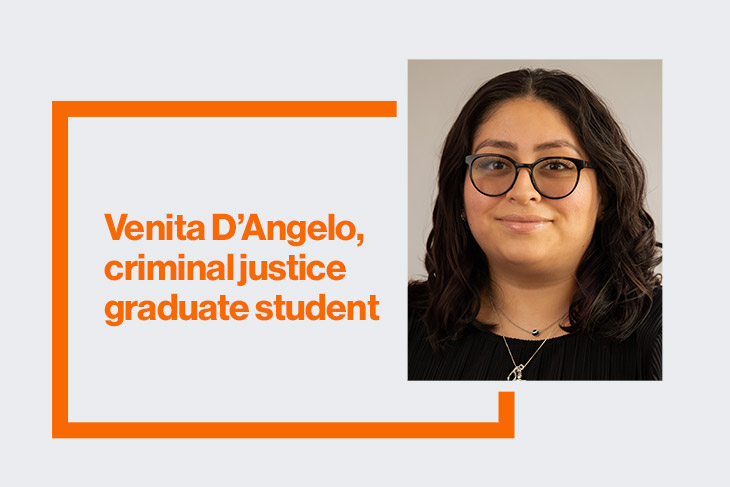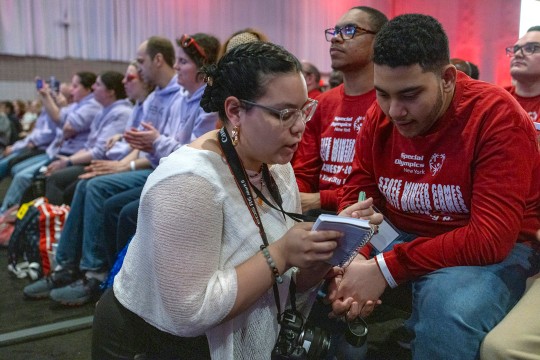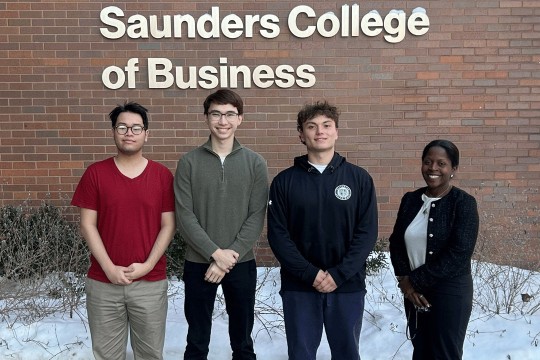RIT graduate student gains experience through Center for Public Safety Initiatives
Venita D’Angelo helps provide resources to victimized individuals
Venita D’Angelo, a graduate student pursuing a master’s degree in criminal justice, is working with the Center for Public Safety Initiatives in the College of Liberal Arts to reduce crime through program evaluation, data analytics, and project management services for area law enforcement, community nonprofits, and other criminal justice professionals. D’Angelo is also a member of the Community Engagement to Reduce Victimization (CERV) project team.
What drew you to working with the Center for Public Safety Initiatives?
I think for many students the Center for Public Safety Initiatives is so appealing because it affords them the opportunity to engage in thought-provoking conversations and participate in research that has a real impact on our community. Moreover, the faculty and staff in the center truly care about the work they do, and their dedication and fervor are contagious.
What is it like being a part of the Community Engagement to Reduce Victimization project?
The Community Engagement to Reduce Victimization (CERV) project is an incredible program that affords violently victimized individuals the resources and opportunities they need to get their lives back on track. Being a part of the CERV team is incredibly rewarding because I know the work I am doing to support the program from behind the scenes is really making an impact in the Rochester community.
The CERV project, as explained on the CPSI website, aims to provide victims of violence who go to Rochester General Hospital for medical support with a safety net of resources designed to intervene and help victims to prevent further victimization.
What is your role within the CERV project?
I’m kind of a jill of all trades. My official title is research assistant, but I provide support for the program in a number of ways such as coordinating communication, supporting our program director, supporting my bosses in terms of collecting and managing data, attending meetings, writing reports, conducting research, and engaging with the other members of the community to further support our efforts.
What challenges do you face when working with this project?
Nothing worth doing is easy, and the same is true for CERV. Luckily, we have a strong team to handle any issues that arise and over time we’ve really figured out how to come together effectively.
What successes have you had with the project?
Our program, while small, has helped more than 60 individuals in the wake of their violent victimization. We have had very positive feedback from participants and many express that it helped positively change their lives. Some even wish to give back once they are recovered by sharing their experience and providing support to others similarly situated.
What else would you like to do with CPSI?
I would love to continue working with CPSI as a research assistant as the experiences I am exposed to are absolutely invaluable to my professional development. Perhaps one day they’ll let me spearhead my own program.
What do you like most about RIT?
I think my favorite part of RIT is its distinct ability to feel both big and small at the same time. Big in that the opportunities available seem endless, but small in the sense that you know your peers, professors, and other members of staff in your department. There is a real sense of community and camaraderie that I haven’t yet felt elsewhere.













